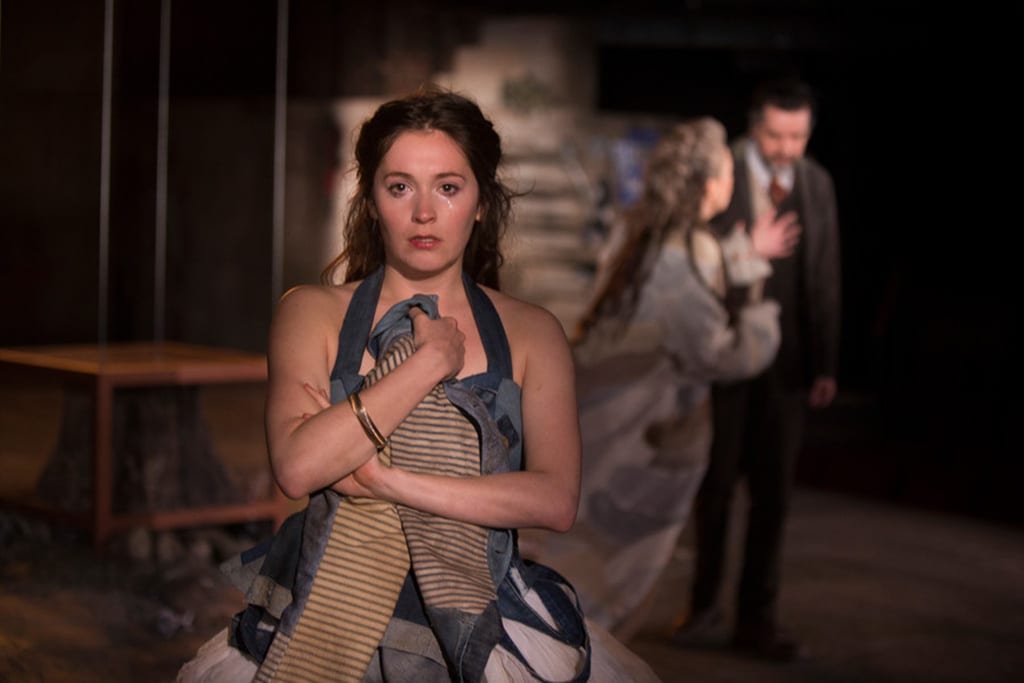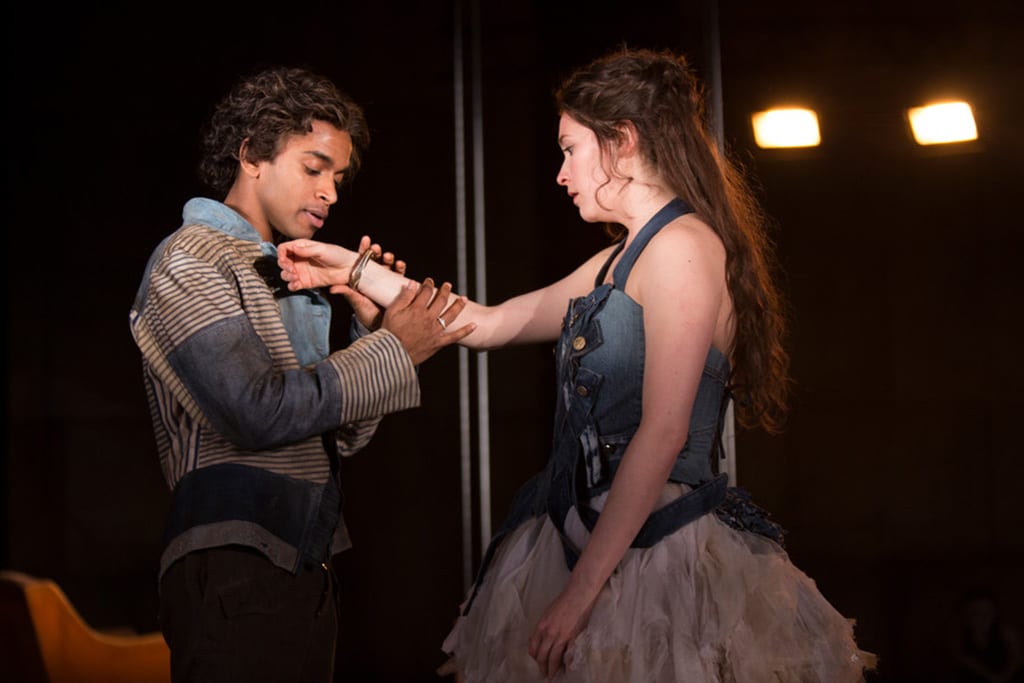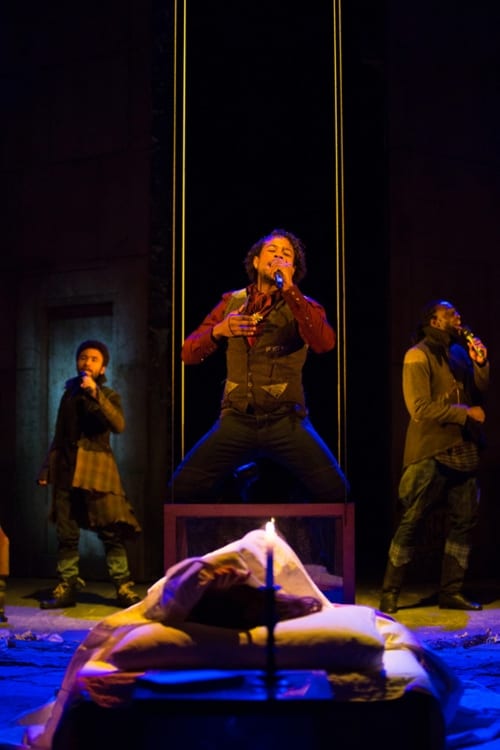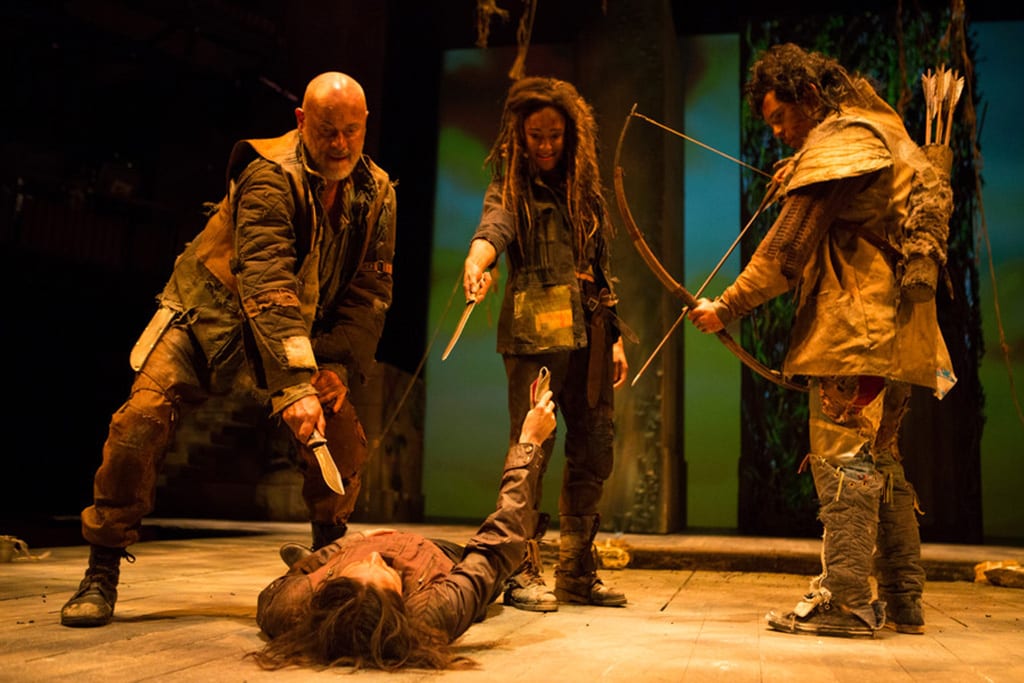I guess I have been fortunate with Cymbeline because I have seen a couple of revelatory productions in my time, but above all was taught it by a brilliant teacher in High School, one Miss Elsie Corrigan, who got a class of rowdy teenagers not only to understand the depths and subtleties of Shakespeare’s underrated and often-maligned play, but even got us loving Thackeray’s Vanity Fair during the same period at the age of fifteen: no mean feat that. Let us hear it for all the Miss Corrigan’s of our educational world who, like the play Cymbeline itself, are often underrated and overlooked.
I therefore enjoyed this RSC production despite my occasional misgivings and quibbles with this particular interpretation. After all, I can still recite along with many of the speeches! Actually, I am basically deeply impressed and a little shaken up by the interpretation of director Melly Still. Essentially, this production of the play is echoing some of the arguments raging about whether or not to leave the EU. One of the subplots of the play involves Britain refusing to pay tribute any longer to Rome. When Cloten says:, “Britain’s a world by itself and we will nothing pay for wearing our own noses,” he seems to be quoting Michael Gove. But Shakespeare has the play move towards peace and reconciliation, towards love and co-operation; and the troubles of the play are all to do with villains who are greedy for power or money. Iachimo, who Iago-like, trips off the jealousy plot, definitely lusts after Innogen once he sees her; and the Duke, James Clyde, is as ambitious as any demagogue or dictator to win the throne for his son and thus himself.
Melly Still has changed the sexes of several of the characters, most pointedly making Cymbline a woman and her consort, the Duke, a man. I was a bit uneasy with this, but it does not materially damage the play and it does make for some thought-provoking moments about female empowerment. As written, there is some wonderful late Shakespearean poetry, especially about Nature; but as designed, Britain is a blasted heath. Nevertheless, the story telling is clear and the characters are engaging and, at times, very moving. I just would have liked a bit more of the kind of magic one finds in the romances like the more problematic Pericles, Prince of Tyre, The Winter’s Tale or The Tempest. But then as Henry James used to say: you have to accept “the given”. And this production gives us a lot, some of it tantalisingly unexpected.
The performances are all very strong. Gillian Bevan makes something interesting of being Queen Cymbelina. I definitely want to see more of her. Bethan Cullinane is one of the most touching and strong Innogen’s imagineable and her parts of the story are played with direct warmth, real complexity and total integrity to the play. Hiran Abeysekera makes a great deal of the arrogant lack of self-knowledge, attractiveness and ultimate guilt of Posthumus; and Marcus Girffiths as Cloten is both suitably repellent and hilarious. Oliver Johnstone captures the diplomatic smoothness, clever duplicity and internal nastiness of Iachimo.
This Cymbeline gives us a very fine evening in the theatre and though I think there is more to Cymbeline as a play than we see here, this interpretation makes perfect sense, is consistent in itself, and is certainly worth seeing both for its viewpoint and for hearing the language of late Shakespeare so well delivered. Full marks to the cast, every single member of it.




